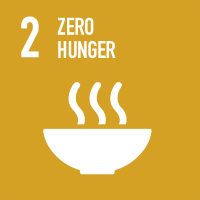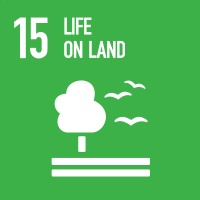Studying at the University of Verona
Here you can find information on the organisational aspects of the Programme, lecture timetables, learning activities and useful contact details for your time at the University, from enrolment to graduation.
Type D and Type F activities
This information is intended exclusively for students already enrolled in this course.If you are a new student interested in enrolling, you can find information about the course of study on the course page:
Laurea magistrale in Biotecnologie agro-alimentari - Enrollment from 2025/2026Le attività formative di tipologia D sono a scelta dello studente, quelle di tipologia F sono ulteriori conoscenze utili all’inserimento nel mondo del lavoro (tirocini, competenze trasversali, project works, ecc.). In base al Regolamento Didattico del Corso, alcune attività possono essere scelte e inserite autonomamente a libretto, altre devono essere approvate da apposita commissione per verificarne la coerenza con il piano di studio. Le attività formative di tipologia D o F possono essere ricoperte dalle seguenti attività.
1. Insegnamenti impartiti presso l'Università di Verona
Comprendono gli insegnamenti sotto riportati e/o nel Catalogo degli insegnamenti (che può essere filtrato anche per lingua di erogazione tramite la Ricerca avanzata).
Modalità di inserimento a libretto: se l'insegnamento è compreso tra quelli sottoelencati, lo studente può inserirlo autonomamente durante il periodo in cui il piano di studi è aperto; in caso contrario, lo studente deve fare richiesta alla Segreteria, inviando a carriere.scienze@ateneo.univr.it il modulo nel periodo indicato.
2. Attestato o equipollenza linguistica CLA
Oltre a quelle richieste dal piano di studi, per gli immatricolati dall'A.A. 2021/2022 vengono riconosciute:
- Lingua inglese: vengono riconosciuti 3 CFU per ogni livello di competenza superiore a quello richiesto dal corso di studio (se non già riconosciuto nel ciclo di studi precedente).
- Altre lingue e italiano per stranieri: vengono riconosciuti 3 CFU per ogni livello di competenza a partire da A2 (se non già riconosciuto nel ciclo di studi precedente).
Tali cfu saranno riconosciuti, fino ad un massimo di 6 cfu complessivi, di tipologia F se il piano didattico lo consente, oppure di tipologia D. Ulteriori crediti a scelta per conoscenze linguistiche potranno essere riconosciuti solo se coerenti con il progetto formativo dello studente e se adeguatamente motivati.
Gli immatricolati fino all'A.A. 2020/2021 devono consultare le informazioni che si trovano qui.
Modalità di inserimento a libretto: richiedere l’attestato o l'equipollenza al CLA e inviarlo alla Segreteria Studenti - Carriere per l’inserimento dell’esame in carriera, tramite mail: carriere.scienze@ateneo.univr.it
Attenzione: agli studenti, che hanno conseguito il livello B2 d’inglese nelle loro carriere triennali, si sottolinea la necessità di sostituire il livello B2 d’inglese completo, previsto dal piano didattico, con il livello C1 informatizzato d’inglese oppure di acquisire altra competenza linguistica in una lingua comunitaria almeno di livello B1 completo.
3. Competenze trasversali
Scopri i percorsi formativi promossi dal TALC - Teaching and learning center dell'Ateneo, destinati agli studenti regolarmente iscritti all'anno accademico di erogazione del corso https://talc.univr.it/it/competenze-trasversali
Modalità di inserimento a libretto: non è previsto l'inserimento dell'insegnamento nel piano di studi. Solo in seguito all'ottenimento dell'Open Badge verranno automaticamente convalidati i CFU a libretto. La registrazione dei CFU in carriera non è istantanea, ma ci saranno da attendere dei tempi tecnici.
4. CONTAMINATION LAB
Il Contamination Lab Verona (CLab Verona) è un percorso esperienziale con moduli dedicati all'innovazione e alla cultura d'impresa che offre la possibilità di lavorare in team con studenti e studentesse di tutti i corsi di studio per risolvere sfide lanciate da aziende ed enti. Il percorso permette di ricevere 6 CFU in ambito D o F. Scopri le sfide: https://www.univr.it/clabverona
ATTENZIONE: Per essere ammessi a sostenere una qualsiasi attività didattica, incluse quelle a scelta, è necessario essere iscritti all'anno di corso in cui essa viene offerta. Si raccomanda, pertanto, ai laureandi delle sessioni di dicembre e aprile di NON svolgere attività extracurriculari del nuovo anno accademico, cui loro non risultano iscritti, essendo tali sessioni di laurea con validità riferita all'anno accademico precedente. Quindi, per attività svolte in un anno accademico cui non si è iscritti, non si potrà dar luogo a riconoscimento di CFU.
5. Periodo di stage/tirocinio
Oltre ai CFU previsti dal piano di studi (verificare attentamente quanto indicato sul Regolamento Didattico): qui informazioni su come attivare lo stage.
Verificare nel regolamento quali attività possono essere di tipologia D e quali di tipologia F.
Insegnamenti e altre attività che si possono inserire autonomamente a libretto
| years | Modules | TAF | Teacher |
|---|---|---|---|
| 1° 2° | Python programming language | D |
Carlo Combi
(Coordinator)
|
Biochemistry and physiology of plant-soil interaction (2023/2024)
Teaching code
4S02783
Teacher
Coordinator
Credits
6
Language
Italian
Scientific Disciplinary Sector (SSD)
AGR/13 - AGRICULTURAL CHEMISTRY
Period
Semester 1 dal Oct 2, 2023 al Jan 26, 2024.
Courses Single
Authorized with reserve
Learning objectives
Aim of the course is to introduce the students to the knowledge of the different plant responses to modifications in soil conditions with particular emphasis on plant nutrition. After a first introduction on the structural/functional characteristics of soil environment, the effects of nutrient fluctuations, the presence of natural and anthropic (e.g. biostimulants) organic molecules and microorganisms will be described. All these themes will be approached at molecular, biochemical and physiological levels. We intend to give an integrated view of the dynamics taking place at the rhizosphere involving roots cellular activities and associated metabolic modifications.
Prerequisites and basic notions
To follow the course and pass the exam, knowledge of basic notions (bachelor) of chemistry, biology, biochemistry is required.
Program
-The main global problems of agriculture and the related subjects of scientific research.
- Problems and importance of soil in the environmental and productive context.
- Soil formation and horizons (notes).
-The rhizosphere.
-Soil constituents.
-Rocks (notes).
-Structure and properties of soil minerals.
-Structure and properties of clays.
-Other soil minerals (notes).
-Analyses of particle size and soil texture.
-Soil organic matter: constituents and their chemical properties.
-The functions of soil organic matter.
-Biological effects of humic substances.
-Biostimulants.
-The carbon cycle in the soil and transformation process of organic matter.
-The origin of charges on the surface of solid components.
-Cation and anion exchange capacity.
-Soil pH.
-The soil solution and the concept of nutrient availability
-Movement of nutrient in the soil.
- Membrane transport proteins at the root plasma membrane: structure and functions
-N forms in soil.
-Nitrate and ammonium uptake systems and the role of PM H+-ATPase
-Molecular aspects of nitrate uptake: NRT1, NRT2, NAR e AMT1 genes.
-P forms in soil. Plants responses to P stress. Pht genes.
-Lupin as model plant for the study of P stress.
-S forms in soil. Molecular physiology of sulphate uptake. Sultr genes.
-K forms in soil. Molecular physiology of K+ uptake: AKT e HAK genes.
-Mg and Ca in soil. Biochemical roles of Mg and Ca and molecular physiology of their uptake.
-Fe in soil: reactions and forms. The problem of calcareous soils. Physiological plant responses to Fe stress: strategy I and II. The role of IRT, FRO, H+-ATPase, YS1 and TOM genes.
-Fe and soil humic substances: complexing and interfering actions on acquisition mechanisms.
-Molecular aspects of B, Zn, Mn e Cu uptake systems (notes).
Bibliography
Didactic methods
The course will be delivered through face-to-face lectures. Lessons will not be provided in other ways except limited to students who, due to Covid, cannot access the University upon presentation of the relative request on the appropriate form. In these cases, the teacher will provide additional teaching
Learning assessment procedures
The exam consists in an oral colloquium both for attending and not-attending students.
Evaluation criteria
The exam is aimed at evaluating the student's knowledge of the whole program of the course paying attention to the depth of acquired knowledge and the ability to systematically connect topics.
Criteria for the composition of the final grade
The mark will be expressed in 30-point scale.
Exam language
Italiano



